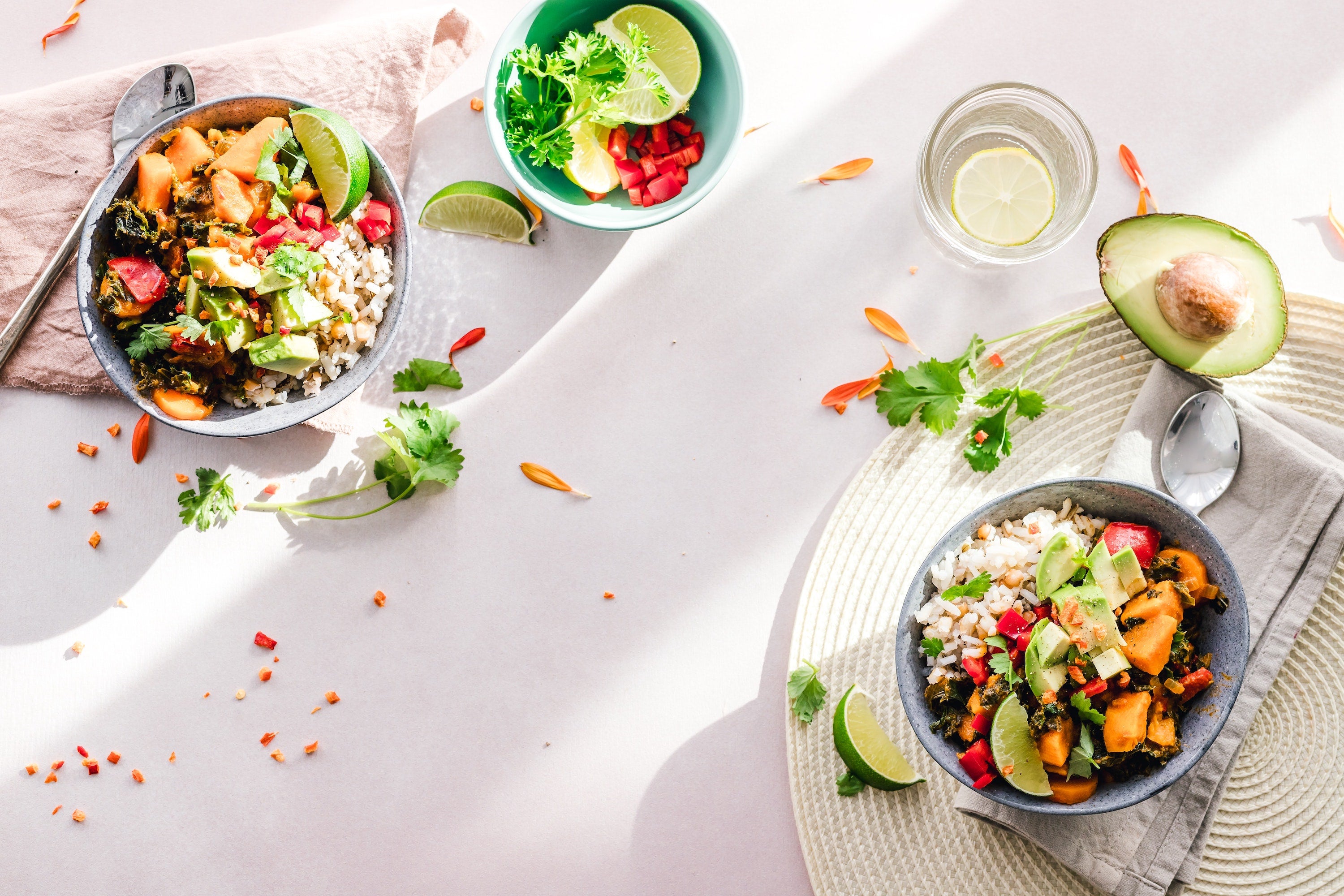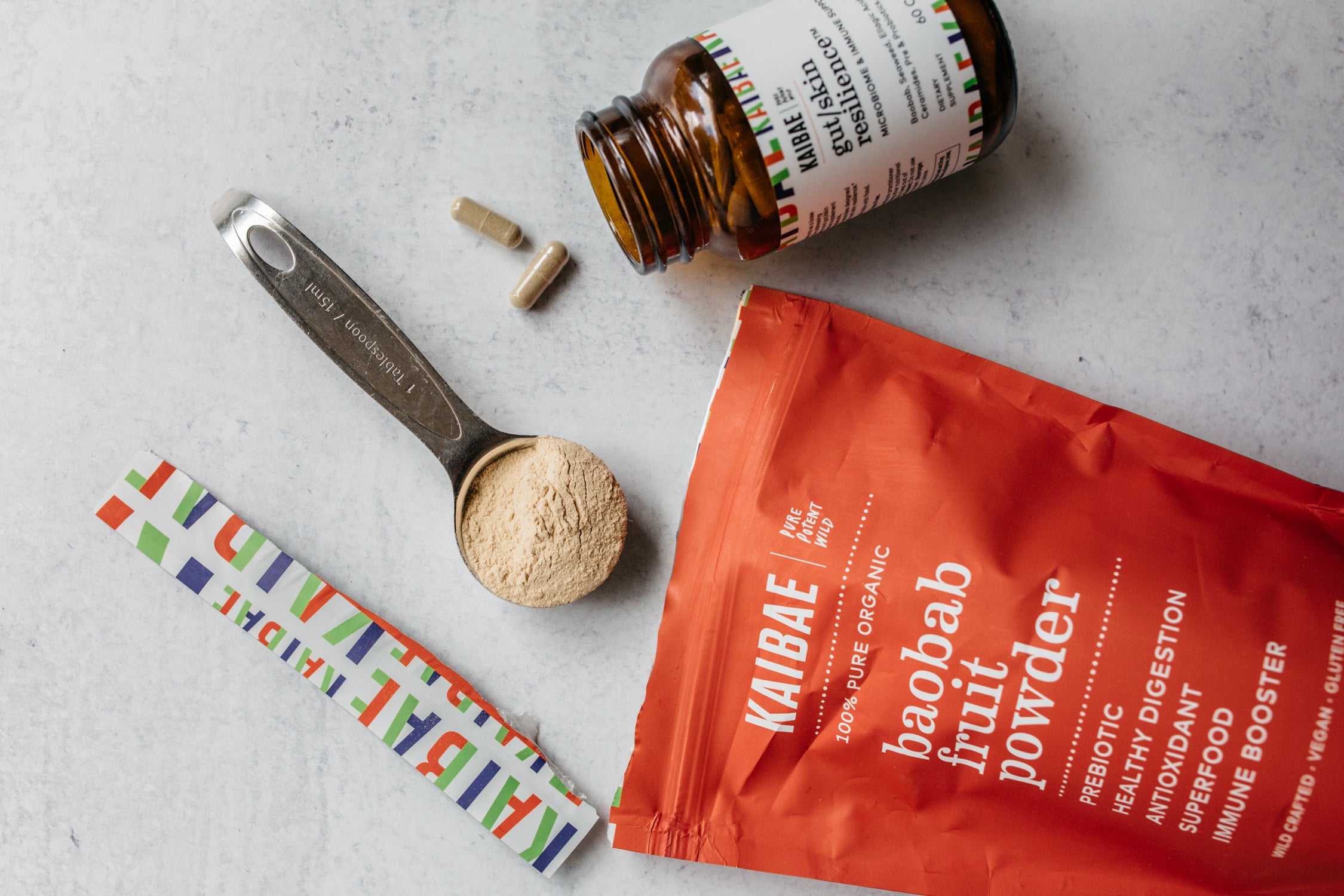Prebiotic Fiber: Benefits and Use

What You Should Know About Prebiotic Fiber
Updated March 8, 2024
The gut is an incredibly complex environment with trillions of microorganisms known as the gut microbiome. Diet and lifestyle influence the balance of these microbiota and a diverse gut microbiome is associated with better health.
A diet high in sugar, fat and processed foods typical of the Western diet depletes the diversity of the gut microbiome observed with obesity, type 2 diabetes, cardiovascular disease, cancer, autoimmune and neurodegenerative disease.
Studies show that adding fiber, especially prebiotic fiber significantly improves gut health and metabolic function.
What is prebiotic fiber?
Think of prebiotic fiber as the food source for the good bacteria that naturally occur in the gut; simply put, you need prebiotic fiber to feed your probiotics.
So, what is the difference between fiber and prebiotic fiber? Fruits and vegetables include both. But there is a distinct difference.
Insoluble fiber passes through the gut undigested and is not broken down by bacteria and therefore has a low impact on the growth of beneficial bacteria. Fiber promotes regular bowel movements, improves lipids and blood sugar levels, and keeps us feeling fuller longer.
Prebiotic fiber is soluble fiber which gut bacteria selectively utilize to produce compounds such as short-chain fatty acids, which benefit the immune, hormonal and nervous systems.
Examples of prebiotic soluble, fermentable fibers
- Beta-glucans - oats, and barley
- Guar gum - guar beans
- Fructans - Inulin, oligo-fructose, fructooligosaccharides - onions, chicory root, asparagus, Jerusalem artichokes
- Galacto-oligosaccharides - legumes and dairy
- Pectins - apples, berries, and Baobab fruit powder
- Resistant starch - legumes, unripe bananas
What are the benefits of prebiotic fiber?
Prebiotic fiber promotes the growth of beneficial gut bacteria which alleviates digestive problems, and improves metabolic health. Beyond immediate gut issues, prebiotic fiber positively affects immune health, weight loss, allergies, bone health, and even stress-related conditions.
Does prebiotic fiber help with constipation?
Prebiotic fiber helps achieve regular, strain and pain-free bowel movements. People who experience constipation often have an imbalance in the gut microbiome. Prebiotic fiber helps to rebalance your gut microbiome and alleviate constipation.
Does prebiotic fiber cause gas?
As your digestive system adjusts to increased prebiotic fiber in your diet, you may experience gas. You can help avoid or alleviate symptoms by slowly introducing prebiotic fiber in your diet.
If you have IBS, SIBO, or sensitivity to FODMAP foods, you should consult with your doctor before adding prebiotic fiber to your diet.
Does prebiotic fiber help you lose weight?
Prebiotic fiber helps you lose weight and is an effective alternative to Ozempic. Prebiotic fiber stimulates a gradual release of GLIP-1 throughout the gut without the digestive distress and muscle loss of the faster acting Ozempic.
Prebiotic fiber also increases the growth of beneficial microorganisms including Bifidobacteria, Lactobacilli, Akkermansia and Faecalibacterium prausnitzii that support healthy weight and prevent of insulin resistance.
Do prebiotics help depression and anxiety?
There might be something about that gut feeling….. gut bacteria produce many neurotransmitters that the brain uses to regulate learning, memory, and mood.
An imbalanced gut microbiome has less of the good bacteria that produce calming neurotransmitters such as GABA and serotonin. The daily intake of prebiotic fiber and probiotics strengthens the gut-brain axis and improves stress resilience.
Who should take prebiotics?
Prebiotic fiber should be considered first in every health regimen. Prebiotic fiber promotes beneficial microbiota and helps with the absorption of all other nutrients. For Individuals with irritable Bowel Syndrome (or IBS), Small Intestine Bacterial Overgrowth (SIBO) I recommend you follow your doctor's recommendations.
7 Signs You Need Prebiotic Fiber
So far, you’ve learned that prebiotic fiber is essential for gut health as it promotes beneficial gut bacteria to flourish. You’ve also seen how far-reaching gut health can be to your overall health and well-being. So noticing the obvious (and sometimes not-so-obvious) signs of poor gut health will help you decide if you should start trying prebiotics.
Here are the common signs and symptoms that indicate possible gut health concerns, and serve as your notice to start increasing prebiotic fiber in your diet:
- Gas & bloating
- Cramping
- Indigestion
- Diarrhea or constipation
- Allergies/asthma
- Frequent illness
- Mood disorders
- Skin conditions such as acne, eczema, and dry skin
How to increase prebiotic fiber in the diet
Because prebiotic fiber occurs naturally in a good selection of foods, you could get plenty of prebiotic fiber from a varied diet. However, research has already shown that less than 5% of people meet their daily fiber needs!
Include a selection of:
- Vegetables: asparagus, Jerusalem artichoke, onions, garlic, leeks, chicory root, jicama
- Fruits: apples, berries, tomatoes, avocado, bananas, baobab
- Grains: oats, brown rice, barley
- Legumes: lentils and beans
What about prebiotic fiber supplements?
It is undoubtedly true that having a wide and varied diet may provide you with the amount of prebiotic fiber you need for your diet. But studies have shown that more than 95% of Americans don’t consume enough fiber in their daily diets.
This is where prebiotic fiber supplements can help. Taking a prebiotic supplement such as Baobab fruit powder is easy to ensure you’re meeting your daily fiber needs to help support good gut health.
How much Prebiotic Fiber to take per day?
The recommended fiber for women and men in their diets is 25 and 38 grams, respectively. While there is no recommended intake or daily allowance for prebiotics in healthy people, taking 8 grams of Baobab powder daily has been shown to benefit digestive health.
How long does it take for Prebiotic Fiber to work?
Depending on the quality of the source of prebiotics and the amount of prebiotics you are taking, you can typically expect to see improvements in a couple of weeks. Some people have even seen improvements just a few days after starting prebiotics.
What about probiotics?
Probiotics are live bacteria that help keep your digestive system healthy. They are essential for gut health and are essential for the conversion of food into nutrients your body can use. Probiotics can be taken to target specific healthcare needs. Even though trillions of microorganisms reside in the gut, research shows that certain probiotic strains improve your metabolism and even your mood
Can you use prebiotics and probiotics together?
Taking prebiotics and probiotics together is referred to as synbiotics. Because prebiotics supports probiotic bacteria, it can be very effective to include both in your diet. KAIBAE gut/skin resilience for example is a dietary supplement that combines spore probiotics and prebiotic baobab powder to benefit your skin from within.
What is Baobab Fruit Powder?
Baobab fruit powder is wild harvested in the African Savanna and provides superior gut benefits. Baobab fruit Powder contains prebiotic fiber, polyphenols , vitamin C and minerals , a unique and comprehensive blend of nutrients that supports a healthy gut microbiome.
Not all fiber is created equal.

How To Use Baobab?
Baobab Fruit Powder tastes sweet and tangy and can be added to smoothies, yogurt, oatmeal or granola. Baobab Powder is a raw ingredient, organic and wild harvested, gluten free and free of additives.









